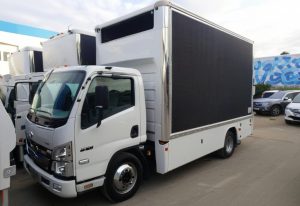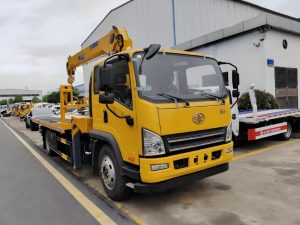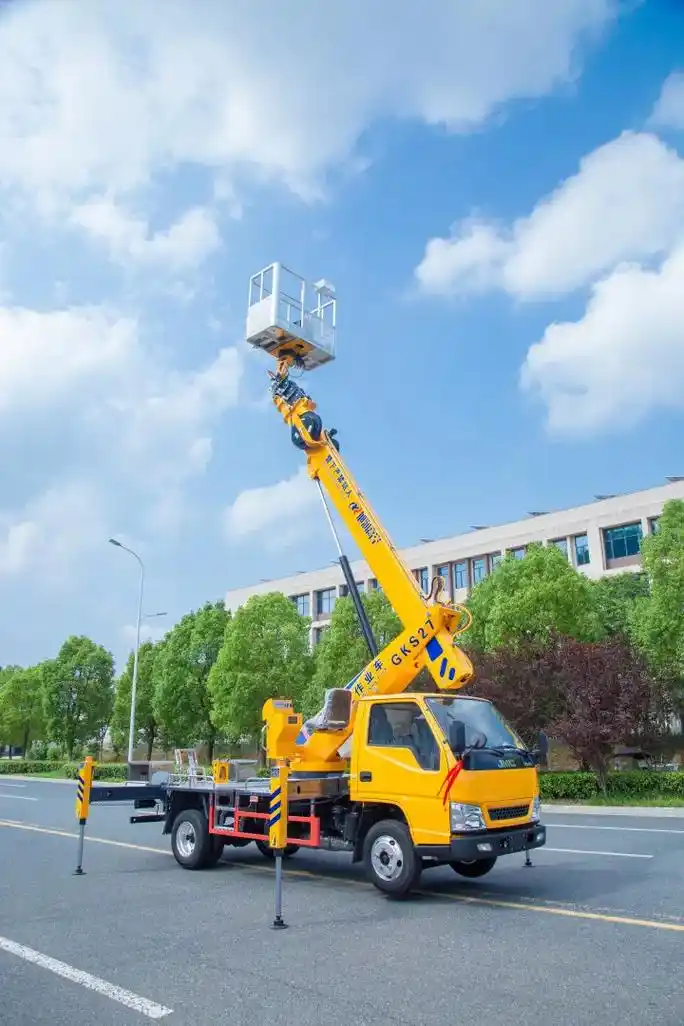Table of Contents
ToggleChoosing the right garbage truck can feel like a daunting task, especially with so many options available. Whether you’re a business owner looking to enhance your waste management system or a municipality aiming to upgrade your fleet, understanding the ins and outs of garbage trucks is crucial. In this guide, we’ll break down everything you need to know to make an informed decision. So, grab a cup of coffee, and let’s dive in!
Understanding Your Needs
Before you even think about browsing through different models, it’s essential to assess your specific needs. What type of waste are you dealing with? How much waste do you generate? These questions will guide you in selecting the right garbage truck.

Assessing Your Waste Management Requirements
Start by evaluating the volume and type of waste you need to manage. Are you dealing with residential waste, commercial refuse, or industrial debris? Each type of waste may require a different approach. For instance, if you’re managing a lot of bulky items, you might need a truck with a larger capacity.
Think about the frequency of waste collection as well. If you’re in a busy urban area with high waste generation, you might need a truck that can handle daily pickups. On the other hand, if you’re in a rural area with less waste, a smaller truck might suffice.
Types of Garbage Trucks Available
Once you have a clear understanding of your waste management needs, it’s time to explore the different types of garbage trucks available. Each type has its unique features and benefits.
Front Loader Trucks
Front loader trucks are designed for commercial waste collection. They have large containers that can be lifted from the front, making them ideal for businesses with dumpsters. If you’re looking for efficiency in commercial waste collection, this might be the way to go. These trucks are typically used in settings where waste is collected from large bins, such as shopping centers or industrial sites.
One of the significant advantages of front loader trucks is their ability to handle heavy loads. They are built to withstand the rigors of frequent use and can often be operated by a single driver, which can save on labor costs. However, they do require a bit more space for maneuvering, so keep that in mind if you’re operating in tight areas.
Rear Loader Trucks
Rear loader trucks are the classic garbage trucks you often see on residential routes. They have a rear compartment where waste is loaded, making them suitable for curbside collection. If your focus is on residential waste, these trucks are a solid choice. They are designed for easy access, allowing workers to quickly load waste from the back.
One of the benefits of rear loader trucks is their versatility. They can handle a variety of waste types, from household garbage to yard waste. Additionally, they are generally more compact than front loaders, making them easier to navigate in residential neighborhoods. However, they may require more manpower, as the loading process is typically manual.
Side Loader Trucks
Side loader trucks are a bit of a hybrid. They can collect waste from the side, which allows for more flexibility in tight spaces. If you’re operating in urban areas with narrow streets, side loaders can be a game-changer. These trucks often come equipped with automated arms that can pick up bins, reducing the need for manual labor.
The automation aspect of side loader trucks can significantly enhance efficiency. With the ability to collect waste without leaving the cab, drivers can complete routes faster and with less physical strain. However, it’s essential to ensure that your waste collection routes are compatible with the use of side loaders, as they may not be suitable for all neighborhoods.
Key Features to Consider
Now that you know the types of garbage trucks, let’s talk about the key features you should consider when making your choice.
Capacity and Size
The capacity of the truck is one of the most critical factors. You want to ensure that the truck can handle your waste volume without needing frequent trips to the landfill. Consider the size of the truck in relation to your waste generation. A larger truck might be more efficient, but it also requires more space to maneuver.
When evaluating capacity, think about the weight of the waste as well. Some materials are heavier than others, and you want to ensure that the truck can handle the load without exceeding weight limits. Additionally, consider the height of the truck. If you’re collecting waste from areas with low overhangs, a taller truck might not be practical.
Fuel Efficiency
In today’s world, fuel efficiency is more important than ever. Not only does it affect your operating costs, but it also has environmental implications. Look for trucks that offer better fuel economy, as this can save you money in the long run.
Many manufacturers are now producing garbage trucks that run on alternative fuels, such as compressed natural gas (CNG) or electricity. These options can significantly reduce your carbon footprint and may even qualify for government incentives. However, it’s essential to consider the availability of fueling stations in your area if you choose an alternative fuel option.
Technology and Automation
With advancements in technology, many garbage trucks now come equipped with automated features. These can include automated arms for loading waste or GPS systems for route optimization. Investing in technology can enhance efficiency and reduce labor costs.
For instance, GPS systems can help drivers navigate routes more effectively, reducing fuel consumption and improving service times. Additionally, some trucks come with onboard diagnostics that can alert you to maintenance issues before they become significant problems. This proactive approach can save you time and money in the long run.
Budgeting for Your Garbage Truck
Once you’ve narrowed down your options, it’s time to talk about budgeting. How much are you willing to spend?
Initial Costs vs. Long-Term Investment
While it might be tempting to go for the cheapest option, consider the long-term investment. A more expensive truck might offer better fuel efficiency and lower maintenance costs, ultimately saving you money over time.
When budgeting, don’t forget to factor in the cost of insurance, maintenance, and repairs. These ongoing expenses can add up quickly, so it’s essential to have a clear understanding of the total cost of ownership.
Financing Options
If the upfront cost is a concern, explore financing options. Many manufacturers and dealerships offer financing plans that can make purchasing a garbage truck more manageable. Don’t hesitate to ask about leasing options as well, which can provide flexibility.
Leasing can be an attractive option for businesses that want to keep their fleet up-to-date without the burden of ownership. It allows you to use the latest technology and features without committing to a long-term investment. However, be sure to read the fine print and understand the terms of the lease agreement.
Maintenance and Support
A garbage truck is a significant investment, and like any vehicle, it requires regular maintenance. Proper upkeep not only extends the life of the truck but also ensures that it operates efficiently and safely. Let’s dive into the key aspects of maintenance and support that you should consider when choosing a garbage truck.
Importance of Regular Maintenance
Regular maintenance is crucial to keep your truck running smoothly. Neglecting maintenance can lead to costly repairs down the line. Create a maintenance schedule and stick to it to ensure your truck remains in top condition.
Think of maintenance as a health check-up for your garbage truck. Just like you wouldn’t skip your annual physical, you shouldn’t overlook the routine checks for your vehicle. Regular oil changes, brake inspections, and tire rotations can prevent minor issues from escalating into major problems.
Additionally, keeping an eye on the hydraulic systems, which are vital for the operation of loading mechanisms, is essential. If these systems fail, it can lead to downtime and lost revenue. A well-maintained truck not only performs better but also enhances safety for the driver and the public.
Finding Reliable Service Providers
When it comes to maintenance, finding a reliable service provider is key. Look for mechanics who specialize in garbage trucks and have a good reputation. Ask for recommendations and read reviews to ensure you’re making the right choice.
Consider establishing a relationship with a local service provider who understands the specific needs of your garbage truck. They can offer tailored advice and services that align with your operational requirements. Additionally, some manufacturers provide maintenance packages that can simplify the process and ensure that your truck receives the care it needs.
Environmental Considerations
In today’s eco-conscious world, it’s essential to consider the environmental impact of your garbage truck. As waste management practices evolve, so do the technologies and regulations surrounding them.
Emission Standards
Make sure the truck you choose meets current emission standards. Many municipalities have regulations in place to reduce air pollution, so it’s crucial to stay compliant. Trucks that meet or exceed these standards not only help the environment but can also save you from potential fines and penalties.
When evaluating trucks, look for those equipped with advanced emission control technologies. These can include diesel particulate filters (DPF) and selective catalytic reduction (SCR) systems, which significantly reduce harmful emissions. Investing in a truck that meets stringent emission standards can also enhance your company’s reputation as an environmentally responsible business.
Recycling Capabilities
If your waste management strategy includes recycling, look for trucks that can accommodate recyclable materials. Some trucks come equipped with separate compartments for recyclables, making it easier to sort waste on the go.
Having a truck that supports recycling can streamline your operations and improve your overall waste management strategy. It allows you to collect recyclables efficiently, reducing contamination and increasing the amount of material that can be processed. This not only benefits the environment but can also lead to cost savings in disposal fees.
Conclusion: Making the Right Choice
Choosing the right garbage truck doesn’t have to be overwhelming. By understanding your needs, considering key features, budgeting wisely, and keeping environmental factors in mind, you can make an informed decision that suits your waste management requirements.
Remember, this is an investment in your business or community, so take your time and choose wisely. The right garbage truck can enhance your operational efficiency, reduce costs, and contribute positively to the environment.
As you embark on this journey, keep in mind that the best choice is one that aligns with your specific needs and goals. Whether you opt for a front loader, rear loader, or side loader, ensure that it fits seamlessly into your waste management strategy. Happy truck hunting!







